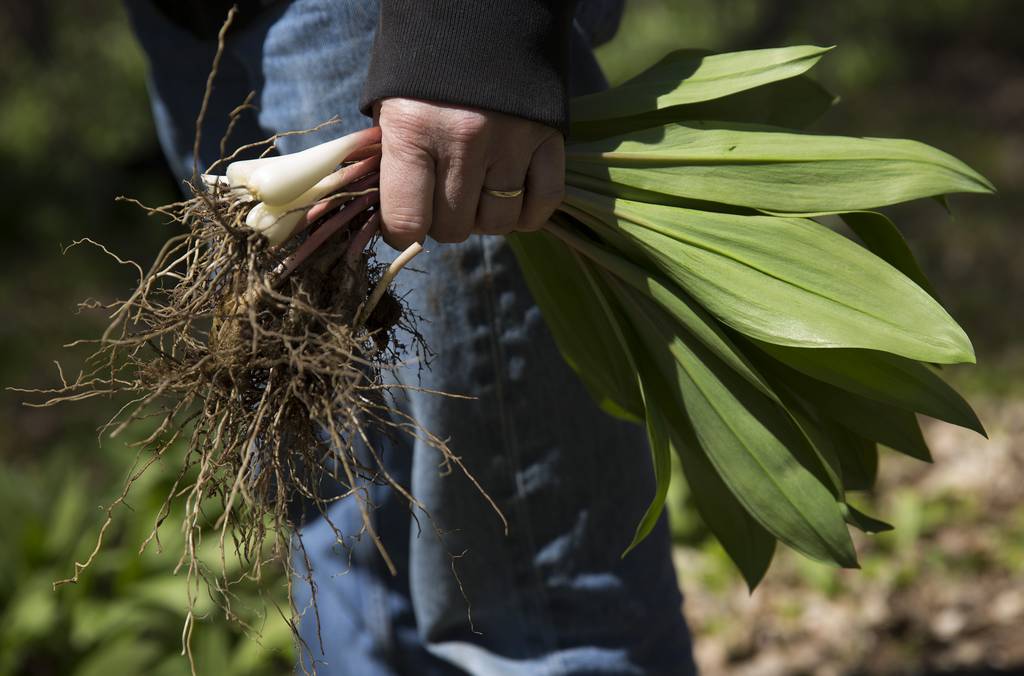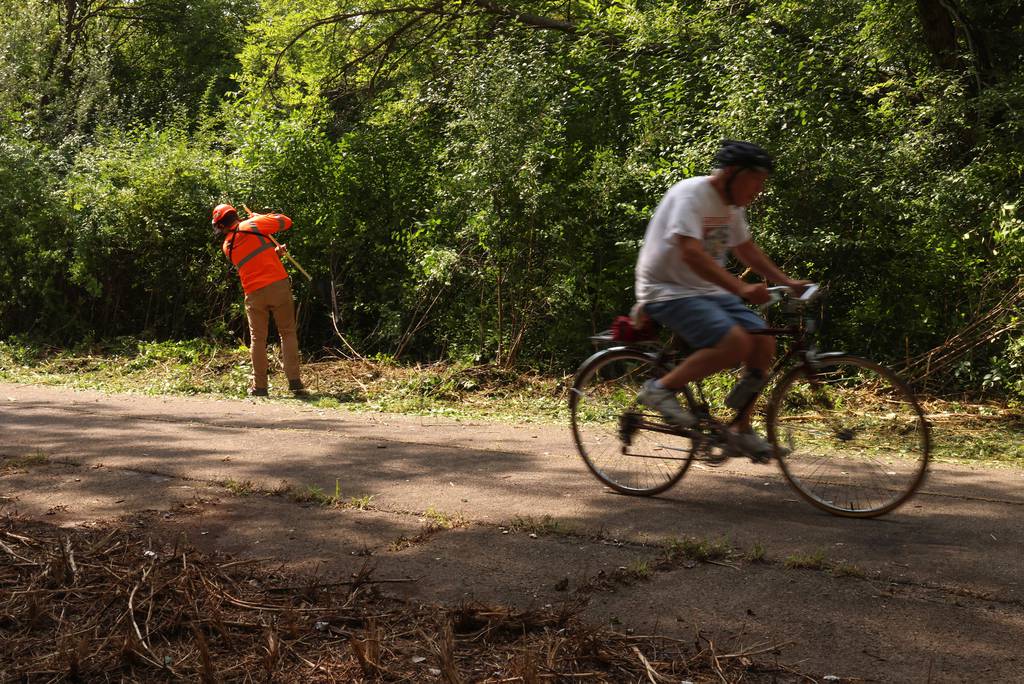When you think about poaching, ramps are likely not the first thing that come to mind.
But as foraging has grown in popularity, plants including ramps, a popular wild onion, and mushrooms such as morels are frequently targeted by poachers to sell to Chicago-area restaurants.
Poaching constitutes removing anything that naturally occurs in the forest preserves, from catching animals to collecting edible plants to picking flowers. The simple act of removing a plant can have unforeseen repercussions and disrupt the ecosystem.
“Most people think it’s a harmless act,” said Martin Hasler, deputy chief of the Cook County Forest Preserves Police Department. “The forest preserve is for all of us and taking away anything from it disturbs the forest preserve from its natural state.”
Poaching in the forest preservers has always been an issue, but the rise of foraging is changing how it’s done, said John McCabe, director of resource management with the Cook County Forest Preserves. He said forest preserves employees have found swaths of land where plants have been pulled up or destroyed completely.
McCabe credits social media for the increase in foraging, the practice of gathering plants and sometimes animals for consumption or profit. He said people who frequent the forest preserves will often post about where they went and what they gathered, leading to others following in their footsteps.
Some gather small amounts of plants for personal use, but the majority of foraging is strictly for profit, Hasler agreed.
“There is a market for that,” Hasler said. “They know where to go, they know what they’re looking for and they know where to take it once they get it.”
Foraging can be done sustainably, but oftentimes foragers decimate an area, filling up trash bags full of edible plants to sell across the city, McCabe said.
“Restaurants like locally grown stuff and what they don’t know, or in some cases maybe they do, is that these things are being collected illegally in the forest preserves,” McCabe said. “Even though we have healthy populations of these types of plants, in a county with a population of 5.2 million people, if this were to get out of hand, you could devastate these populations in a very short period of time.”
Dave Odd, a professional forager who runs Odd Produce, a foraging organization that sells naturally occurring edibles and offers foraging tours, supplied Chicago restaurants with foraged foods for roughly 10 years. He said it was challenging to run a business where one week he could sell $800 worth of food and the next week sell nothing, as owners and chefs would still be fully stocked.
During this time, Odd found his foraged goods where he could, in street alleys, roadsides and anywhere else in the city where plants grow.
“Everyone that’s into foraging at some point has definitely taken something from somewhere they wouldn’t have, shouldn’t have or weren’t supposed to,” Odd said.
At the height of his business, Odd worked with around 40 businesses on a weekly basis. He supplied chefs with fairly specific ingredients who were willing to add something to a current dish or craft a special depending on the season.
Ramps are one of the most popular picks, Odd said, and make up the primary species in the Chicago area that could be overharvested.
The city’s name is even derived from the Native American word “chicagoua,” which refers to a wild-growing, stinky onionlike or garliclike plant — believed to be the same plant as the ramp.
[ Chicago’s namesake plant, the ramp, threatened by foragers ]
Kevin Erickson, senior manager of sustainable agriculture at Loyola University, teaches urban agriculture and conservation practices and is an active forager. He said he enjoys foraging for mushrooms in particular and doing it sustainably is key.
“There’s a good reason why it’s illegal to pull these things out of parks and forest preserves,” Erickson said. “If everyone wanted to do that, it’d be gone.”
Sustainable practices include marrying invasive species removal with edible foraging, avoiding overharvesting, not picking young plants which haven’t had a chance to flourish and leaving at least 25% of the plant or patch, according to Erickson. This allows plants to continue living and thriving, able to bounce back in just a few days so long as they aren’t decimated.
“A lot of these plants are long term, they may take several years to be able to harvest,” Erickson said. “Ramps is a great example. Overharvesting can be commonly done because we get really excited finding something. We feel like we have to have it and if we don’t take it, someone else will.”

Catching poachers in the act within the confines of the 70,000 acres that make up the forest preserves has proven to be difficult. When a volunteer or visitor spots poaching taking place, they can call the forest preserve police, but more often than not, the poacher gets away before law enforcement arrives. Foragers have been known to drop their collecting bags and run.

Afternoon Briefing
Weekdays
Chicago Tribune editors’ top story picks, delivered to your inbox each afternoon.
In these instances, while the poacher may not have gotten away with their prize, the vegetation they collected typically can’t be replanted.
Those that avoid reprimand, McCabe said, typically take a more secretive approach: parking in a nearby neighborhood, pulling off on the side of the road and hiding collecting bags from other preservegoers.
Depending on the act, poachers can be cited and fined $75 to $500. With an estimated annual 62 million visits each year, the forest preserve staff says permitting for foraging or collecting would not be financially or ecologically feasible.
The preserve Police Department employs four full-time detectives who follow up on every poaching report. Since the staff isn’t able to write a lot of citations for poachers in the act, McCabe said it’s hard to say how many poachers regularly pass through the preserves.
“Most people want to do the right things and are doing the right things out here,” McCabe said. “They know they shouldn’t be out here collecting.”
For foragers, while picking from the right area ensures plants won’t be overharvested or poached, adhering to sustainable practices remains crucial for the success of the harvested habitat.
“The biggest part of foraging is you’re walking in wild spaces,” Erickson said. “Whether you’re consuming the food or not, there’s still a lot of benefits that go with the experience of being out in these spaces. We want to value them and not just think of them as resources for food.”







